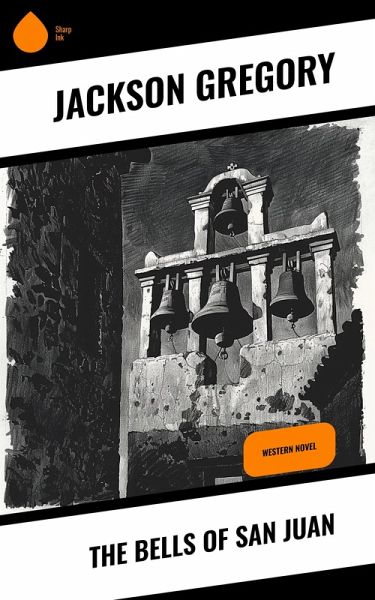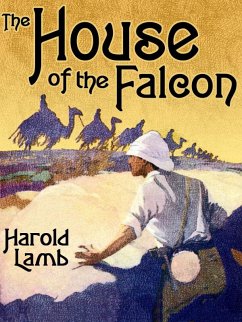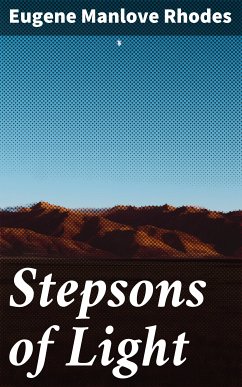
The Bells of San Juan (eBook, ePUB)
Western Novel
Versandkostenfrei!
Sofort per Download lieferbar
2,13 €
inkl. MwSt.
Weitere Ausgaben:

PAYBACK Punkte
0 °P sammeln!
In "The Bells of San Juan," Jackson Gregory presents a compelling narrative set against the rich tapestry of California's gold rush era. Combining vivid prose with a strong sense of place, Gregory masterfully weaves together themes of ambition, love, and the quest for identity within the burgeoning town of San Juan. The story follows a diverse cast of characters navigating their desires and conflicts, all while the titular bells serve as a haunting reminder of hope and longing. Gregory's style is characterized by its lyrical quality and emotional depth, firmly placing the novel within the trad...
In "The Bells of San Juan," Jackson Gregory presents a compelling narrative set against the rich tapestry of California's gold rush era. Combining vivid prose with a strong sense of place, Gregory masterfully weaves together themes of ambition, love, and the quest for identity within the burgeoning town of San Juan. The story follows a diverse cast of characters navigating their desires and conflicts, all while the titular bells serve as a haunting reminder of hope and longing. Gregory's style is characterized by its lyrical quality and emotional depth, firmly placing the novel within the tradition of early American Western literature that explores the human spirit's resilience amid adversity. Jackson Gregory, an influential figure in early 20th-century American literature, was known for his evocative storytelling and keen understanding of frontier life. His own experience growing up in a region punctuated by the intrigues of the gold rush deeply informed his writing. This background, combined with a passion for capturing the essence of rugged individuality and the complexity of human relationships, led him to craft this poignant narrative about life on the California frontier. "The Bells of San Juan" is a must-read for anyone interested in American history, Western literature, or character-driven storytelling. Gregory's masterful blend of emotion and context not only transports the reader to a tumultuous time in American history but also invites reflection on the universal themes of love and ambition. This novel remains a significant contribution to the exploration of the American experience and is sure to resonate with modern readers.
Dieser Download kann aus rechtlichen Gründen nur mit Rechnungsadresse in A, B, BG, CY, CZ, D, DK, EW, E, FIN, F, GR, HR, H, IRL, I, LT, L, LR, M, NL, PL, P, R, S, SLO, SK ausgeliefert werden.













